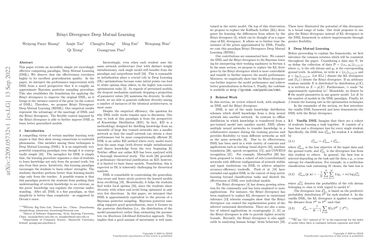Rényi Divergence Deep Mutual Learning
This paper revisits Deep Mutual Learning (DML), a simple yet effective computing paradigm. We propose using R\'{e}nyi divergence instead of the KL divergence, which is more flexible and tunable, to improve vanilla DML. This modification is able to consistently improve performance over vanilla DML with limited additional complexity. The convergence properties of the proposed paradigm are analyzed theoretically, and Stochastic Gradient Descent with a constant learning rate is shown to converge with $\mathcal{O}(1)$-bias in the worst case scenario for nonconvex optimization tasks. That is, learning will reach nearby local optima but continue searching within a bounded scope, which may help mitigate overfitting. Finally, our extensive empirical results demonstrate the advantage of combining DML and R\'{e}nyi divergence, leading to further improvement in model generalization.
PDF Abstract
